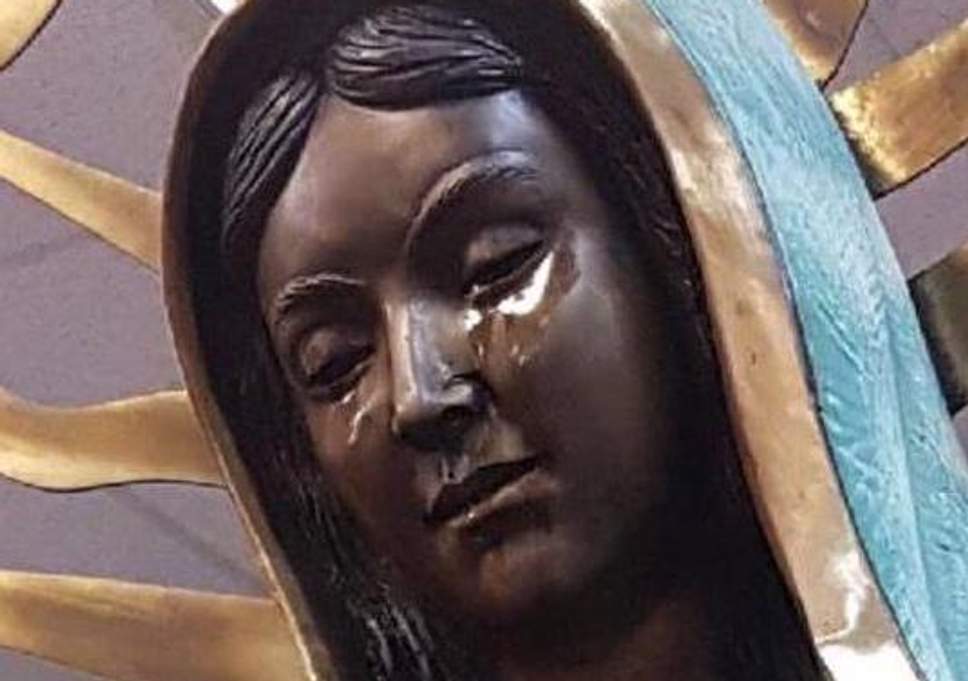Why are we talking about this distressing subject? Because often the secular press wants chiefly to make headlines out of it, and the religious press either wants to score points or finds it too hot to handle. Can we deal with this in a balanced, positive Christian way? You judge whether I’m successful.
If you’re hoping we’ll dig up some new dirt here… think again. That is for the hierarchs (and sadly sometimes the civil authorities) to deal with – or so we may hope. I’m not going to mention specific Orthodox scandals because you might know who I’m talking about. However, I think it is fair to mention scandals where the facts are clear and public. For example, I know from our local papers how the Roman Catholic Archdiocese of Milwaukee fought tooth and nail to limit, as far as possible, reparations to innocent victims. We all know how many Roman Catholic dioceses have declared bankruptcy for this reason. And now, just when we prayed it was over, there are new reports of sexual misbehavior and coverups in the Roman Church. Indeed the U.S. Department of Justice has just directed all American Roman Catholic dioceses not to destroy evidence about these. Lord have mercy. And I think it is appropriate to tell a few stories about things that have affected me personally.
If you’ve been reading this Blog, you know that I usually try to find a slightly humorous side to whatever we’re talking about – but I can’t find anything funny about this. Nor can I find many images to include. Perhaps this one is most appropriate:
![]()
How to approach this difficult subject
Let’s begin like this: “Judge not, that you be not judged.” Matthew 7:1-3
Certainly we must judge actions. But we must not judge persons – not because it’s naughty, but because it’s impossible. We do not know why people are the way they are, why they do what they do, no matter how perverse. (I mean, sometimes we scarcely know why we do what we do.) The cause may be heredity, environment, intentional or demonic or all four. In this case I suspect demons. And have we never done anything which we do not want “proclaimed from the housetops”? we who call ourselves “the chief of sinners”. Divine Liturgy of Saint John Chrysostom But in this case it is so very hard to resist judging.
So thank God that our Lord Jesus Christ does have that ability, “for he knew what was in man”. John 2:25 And he does judge: “He said to the disciples, ‘it is impossible that no offenses should come, but woe to him through whom they come! It would be better for him if a millstone were hung around his neck, and he were thrown into the sea, than that he should cause one of these little ones to stumble.'” Luke 17:1 That seems clear enough.
A couple of years ago, Khouria Dianna and our son David convinced me to go with them to see the movie “Spotlight”, about how the  Boston Globe exposed clergy scandals and their hierarchical coverup in the Archdiocese of Boston. I went somewhat unwillingly, afraid I couldn’t handle it. I was right. By the end of the movie I was slightly “over the edge” – was crying, I snapped at my wife and son for no reason. She had to drive me home. Watching priests destroying children’s lives in that most disgusting way, defiling the holy priesthood, and they and their authorities defaming the Church for which Christ died…if this makes you also want to throw up, good.
Boston Globe exposed clergy scandals and their hierarchical coverup in the Archdiocese of Boston. I went somewhat unwillingly, afraid I couldn’t handle it. I was right. By the end of the movie I was slightly “over the edge” – was crying, I snapped at my wife and son for no reason. She had to drive me home. Watching priests destroying children’s lives in that most disgusting way, defiling the holy priesthood, and they and their authorities defaming the Church for which Christ died…if this makes you also want to throw up, good.
Before we go any farther, let me advise you Orthodox not to gloat. We have also had our scandals, of this kind and others. Our sexual scandals apparently have not been as numerous – but then we are a small minority in America and therefore less likely to make the news, so who knows? I know of an Orthodox priest, now long dead, who was an effective pastor in every way, except that the altar boys soon learned not to be alone with him. The hierarchs never dealt with the situation.
How should the Church deal with scandalous behavior?
Directly and quickly. According to canon law, all who are immoral or heretical and unrepentant should be denied the sacraments till they shape up. This is especially necessary for clergy whose behavior often publicly  damages the Church. Many years ago our Antiochian Metropolitan Philip (+ of blessed memory) told us at a clergy conference that he had just been through the toughest year he’d ever had. Two of his good clergy friends, eminent in the Archdiocese, had been caught in scandalous behavior, and he had retired them quickly. He said, “Any such matters will be dealt with swiftly and severely. We must protect the reputation of the Archdiocese.” Yes! I understand this was also his unhappy task with some other clergy. God bless you, Metropolitan Philip.
damages the Church. Many years ago our Antiochian Metropolitan Philip (+ of blessed memory) told us at a clergy conference that he had just been through the toughest year he’d ever had. Two of his good clergy friends, eminent in the Archdiocese, had been caught in scandalous behavior, and he had retired them quickly. He said, “Any such matters will be dealt with swiftly and severely. We must protect the reputation of the Archdiocese.” Yes! I understand this was also his unhappy task with some other clergy. God bless you, Metropolitan Philip.
The Effects of Clergy Abuse on the Victims
Clergy misbehavior does enormous harm to the institutional Church, especially when scandals are swept under the table and then discovered. More than a few Roman Catholic (and some Orthodox) bishops have worked on this principle: first try to protect the institutional Church, then the position of clergy, and last, and only if necessary, acknowledge and help the victims. That is precisely backwards.
Worst of all is the harm done to those who are victimized by clergy. It affects youth, especially, in so many ways for the rest of their lives. I know. Early in the 20th century when my father was a boy he was abused once by a priest.
Some have said recently, regarding the extraordinarily many cases of male harassment of women which are finally coming to light, “Why don’t they just report it immediately to the police?” The obvious answer is that they can’t bear to acknowledge that it happened, and so for years it festers inside them destroying their self-worth, making them feel ashamed, guilty, weak, angry.
That was true with my dad. Finally, late in life he confided only in my mom, and she told me after he died. Since then, I’ve realized that explained a lot. He was a good, loving man, but he always had a hostile edge toward everything, and especially toward religion, that he just could not shake. So that was why… For almost 50 years he would not go to church (my mom did, and I felt caught in the middle) and when he finally returned it was not to the Roman Catholic Church.
I have my own story to tell. I was set upon by my Episcopalian rector – unsuccessfully I hasten to add. I got out of there as fast as I could. I was hoping to go to seminary and his job it was to recommend me for it – or not. He invited me to dinner and to talk about it, and we did for a while, but suddenly he was on the sofa beside me and it was clear he was interested in more than conversation. (It still gives me the creeps to think about it.) I escaped from him, but for almost a year I was terrified he would use it against me and that my vocation would now be a dead issue. Then I discovered I wasn’t the only one. This so troubled me – that a pastor would prey upon his parishioners and even abuse his authority – that I quietly went to the bishop just so he’d know what was going on, lest the Church’s reputation be damaged. To my amazement the bishop seemed not at all startled and said only that he would handle it. My rector recommended me for seminary and went out of his way to be kind to me. (Looking back, I wonder if the bishop did “handle it”.) But I know that was not the end of my rector’s, um…”activities”, and my bishop gave every indication that he would not be displeased if I left the diocese. None of this disturbed my convictions about “the Church” and my vocation, but after that I never felt at ease with the Episcopal Church. I went to seminary with my eyes wide open. With good reason. Active gay clergy were accepted in the Episcopal Church long before it was legal, and now it’s acceptable almost everywhere, and that was one of the things (among many) that drove me to Orthodoxy, and for me it all came to good in the end, so thank God. OK, enough of this.
Priests and bishops represent Christ. They are the image of Christ to their people. They have a sacred obligation to remain morally pure, clean and honest. How many peoples’ faith in God and trust in the Church are undermined when clergy harass and abuse them? or are found with their “hands in the till”?
The Effect of Clergy Scandals on the Church
Roman Catholic priests’ scandals also affect the vast majority of good clergy who are faithful, and keep themselves pure (which for Roman celibates has got to be very difficult), but now as more and more stories come out, people look at the good ones and wonder… … And not only in the Roman Church. Some years ago two parishioners and I were in Milwaukee walking to a concert, I in my clerical garb, when this well dressed man came up shouting at me because I abused children. I wonder if this had happened to one of his children. I tried to explain that it wasn’t me, that he even had the wrong church. Finally he went away still shouting. With the recent proliferation of guns, I’d now worry he was going to shoot me.

Finally, clergy scandals and their coverup have almost destroyed the overall moral credibility of the Roman Catholic Church. The hypocrisy of a Church teaching that sex outside marriage is wrong, that priests and bishops should remain chaste, that laypeople should not even be permitted artificial birth control – and then tolerating this kind of behavior in the clergy… This is one reason why membership in the Roman Church is down, and attendance far more so. And when our Orthodox bishops try to cover up clergy scandals of various sorts or (God help us) even participate in them, the effect is the same. I will not give you some examples. Why is traditional Christianity declining in America? Don’t blame the secularists and the Muslims. Christians are causing this. We are all tarred by this brush.
What can we learn from this mess? We can learn to behave ourselves! These days when Christianity is distrusted by many in the West – first in western Europe, now increasingly in America – the “reputation” of the Church hangs on each one of us.
Tough Love for Unrepentant Sinners
There’s a Gospel parable Matthew 22:2-14 read at Divine Liturgy in the autumn, in which a king invites people to his marriage banquet, but they have many excuses why they can’t come. So the king invites everybody, both bad and good. It’s Christ, of course, inviting mankind into his Church and his heavenly Kingdom where we will be filled with all his bounty, to the Holy Eucharist where heaven and earth are united. First he invited the Jews and, when they refused, he called the Gentiles and they came.
At the end – and here’s the point today – the King came into the banquet and saw a guy who wasn’t dressed for the feast – and he got kicked out. That is, once we’re in the Church we must “dress properly” in “fine linen, bright and clean which are the righteous deeds of his saints”. Revelation 19:8 All must be trying to become good, righteous, adhere to sound morality and belief. If we are to be light to the world, Christ’s teachings and the Church’s standards must be honored. And if people are not prepared to clean up their act, out they go. This is what we used to call “tough love”.
Christ told the disciples exactly how to handle such situations: “If your brother offends against you” [he means against the Church] go and urge him to shape up. If he refuses, take two or three witnesses. If he still refuses, tell it to the Church and if that doesn’t work, “let him be to you as a sinner or a tax collector”. Matthew 18:15-17
So, brothers and sisters, welcome to the Wedding Banquet of the King, this Banquet prophesied in Scripture, this land of milk and honey, with spiritual food in abundance and wine overflowing, so much more than we can take in. Welcome to the Divine Liturgy, our foretaste here on earth of the Heavenly Banquet.
But now dress for the party! (We act this out symbolically by dressing respectfully for Liturgy. This is not McDonald’s!) We are welcome in the Church only if we are trying to grow in holiness and in the knowledge and love of God and our neighbor, seeking to leave our dirty sins behind, and dress in purity and holiness for the great Wedding Banquet in heaven.
And if we are not, even if the Church here on earth doesn’t catch us, sooner or later Christ the King will come and make it very clear. And out we’ll go.
Forgiveness for Repentant Sinners
Is there room for sinners in the Church? for those who are in error? for those who are still imperfect? Yes, of course. Otherwise there wouldn’t be anybody here but Christ and his holy Mother! But as I wrote not long ago, the Church isn’t a hotel for sinners, the Church is a hospital for sinners. The Church is for those who are seeking to recover, overcome our sins and our errors.
When people are repentant they should absolutely be accepted back into the Church and given another chance. Remember, in Corinth a man was having an affair apparently with his father’s second wife and was unrepentant. Following Christ’s directions, Saint Paul told them to have no more to do with him. But later when he had shaped up and they refused to forgive, Paul told them not to be hardhearted, to accept him back. 2 Corinthians 7
A Tougher Discipline for Those in Authority
However, public scandal by the clergy and others in authority should be dealt with more severely. People in authority should not be restored to their previous positions of responsibility
I once sat through part of a national Bishops’ meeting in the Episcopal Church, where they were debating whether repentant sex offenders should in mercy be allowed to work with youth again. (I thought at first I must be hearing this wrong, but I listened closely to see if I was mistaken. If I was, will someone please correct me.) I don’t know what they finally decided. But the correct answer is: No! Nor should repentant clergy ever just be transferred around to keep things quiet. They and others in authority should never be sent back into situations where they previously had failed to resist temptation, whether with people or with finances.
Metropolitan Philip’s two friends were given professional counseling, and in mercy restored to Communion, but not to positions of authority, for their public reputation went before them. And “the reputation of the Archdiocese [and the Church] must be upheld.”
Next Week: “The Good Samaritan and the Good American”. No, as of Saturday morning, cancel that. I changed my mind.
Next Week for the day after Thanksgiving (You’re going to hate me for this.): The Seven Deadly Sins #2 – GLUTTONY
Week after Next we’ll do “The Good Samaritan”.
Very moving, Father. Thank you.